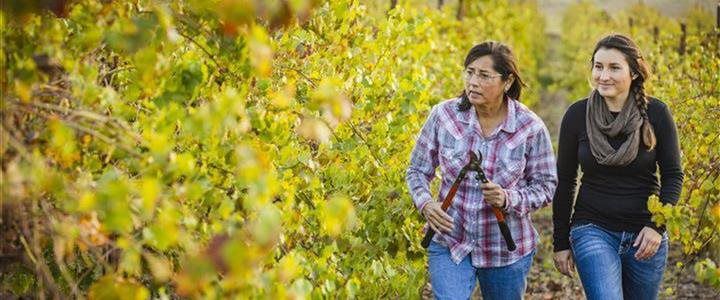(BPT) – The trend of home and community gardens is on the rise in the U.S. A 2014 study by the National Gardening Association found 1 in 3 households now grow their own food to help put breakfast, lunch and dinner on kitchen tables. While more and more people are helping to provide for themselves, purchasing food is the third-highest expenditure in typical American households, according to the U.S. Department of Agriculture. This means that while many people maintain fruitful gardens, farming is still a major industry in the U.S.
Based on recent statistics, the USDA reports:
* U.S. growers produce more than $178 billion in crops per year.
* The U.S. has 2.06 million farms on more than 911 million acres of land.
* The U.S. exported $133 billion in agricultural products in 2015 alone; 44 percent of those exports went to Canada, China and Mexico.
* One in 10 Americans work in agriculture and its related industries.
Do you ever stop to think about the men and women who help grow the world’s food? They come from all walks of life. Many have spent their whole lives working on their families’ farms, while others can trace their love of farming back to a high school teacher or college class. For each of these men and women, agriculture is not only what they do, but also who they are. To celebrate the individuals whose agricultural roots are making a difference in all our lives, Syngenta has launched the #RootedinAg campaign. Here are a few of their stories:
From the Georgia clay to the Midwestern Corn Belt
Leon Hunter grew up on a small family farm in southwest Georgia. He remembers working on the farm at a young age, helping his father and two uncles operate his grandfather’s farm outside the town of Whigham.
“Agriculture was embedded in me,” he says. “Working on the farm was what my cousins and I did after school and all summer.”
Hunter learned the value of hard work from his family — especially his grandfather, who was an astute farmer and businessman with strong values. Hunter now uses those same lessons as he prepares a new generation of growers in his role as a Syngenta agronomy service manager. He and his team of 10 agronomists educate, train and advise colleagues and growers on how to produce the best crops possible in much of the Corn Belt east of the Mississippi River.
Read more of Hunter’s story here.
A passion for sustainability
Mitch Roth grew up on his family’s Michigan farm, where his parents taught him the value of having a nutritious meal on the table each night. Today, Roth is a graduate student at Michigan State University, working toward a doctorate degree in genetics. He hopes his degree will help him find sustainable ways to feed the world. In 2015, he won the graduate level Syngenta Agricultural Scholarship because of his drive and innovative outlook.
While Roth gained invaluable hands-on experience working on his family farm, he knows the average American doesn’t have his level of understanding about agriculture. He believes shrinking that knowledge gap can help eliminate unnecessary fear of genetic research.
“Not everyone can become an expert in agricultural biotechnology,” he says, “but I believe more can be done to bridge this gap.”
Find Roth’s full story here.
Vintage roots
Brenda Wolgamott and her husband, Duane, began their winemaking business in Lockwood, California, in 1999 after years of working in agriculture and pest control. The pair created their own label, named after their young daughter, Marin. Eighteen years later, Marin, who studied wine and viticulture in college, works side-by-side with her parents and is now the winemaker for her namesake vineyard. Both she and her mother agree that working hard can and will pay off, especially in an industry with such a close-knit group of people.
“In this business, in agriculture, the thing that counts the most is your reputation,” Brenda says. “It’s important you do the best job that you can.”
Share your story
These are just a few of the stories that Syngenta is proud to share through its #RootedinAg campaign. Go to the Syngenta Thrive website to read more. And if you make your living in agriculture as a grower, reseller, educator or adviser, consider sharing your story in the #RootedinAg Contest for a chance to benefit your community.

